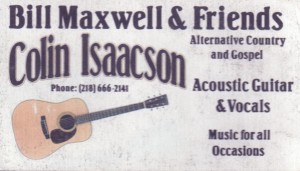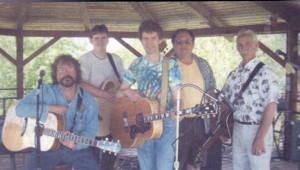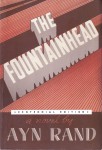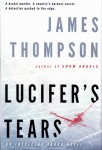“Judge,” the caller on the telephone said, “Mark Rubin here.”
When the St. Louis County Attorney (the head man and not some lackey) calls you on a Sunday afternoon, the news generally isn’t good. It wasn’t.
“Ya?”
“I’ve got some bad news.”
Go figure. What, a mass homicide that needs search warrants? A child abduction? There’s no end to the bad news one can receive from the county’s chief prosecutor.
“Colin Isaacson passed away.”
The message was a shock. Colin, a social worker for St. Louis County up on the Iron Range, was a mutual friend. Closer to the other Mark than me but still, I considered him to be a friend. Worse yet, he was our contemporary: He was only 58 years old.
Too damn young to go.
I first met Colin through author Pat McGauley, a former school teacher in Hibbing. When I began my writerly career, Pat was one of the first local authors I hung out with. Through Pat, I was invited to the Greater Mesabi Men’s Book Club, not once, but twice, to read from and discuss The Legacy and Pigs: A Trial Lawyer’s Story. Colin was a member of the group and an avid reader. The group is infamous on the Range: They’ve been together something like thirty years and read over three hundred books. The unique thing? They only read fiction, books that few men crack open. I met Colin at Pat’s house in Hibbing where we sipped good beer and talked writing. I found out he was a musician. After that, I kept bumping into Colin as a guitarist and singer: at Land of the Loon in Virginia; at the Range Mental Health Christmas Dinner at Valentini’s; at a retirement fete for our mutual friend (and gifted guitarist) Jeff Rantala; at Jeff’s memorial service in Duluth where Colin and Mark Rubin and John Ely (famed steel guitarist and Grammy Award winning member of Asleep at the Wheel) performed; at a John Prine concert in Duluth where some yahoo in a cowboy hat disrupted the show by standing up and insulting Prine.
My second stint with the book club was at one of the member’s cabins on Crane Lake. Colin and I car pooled from his house on the Range to the lake in my SUV. The weekend spent amongst strangers (I didn’t know a soul except Pat and Colin) was one I’ll always cherish: We ate big steaks, played poker, talked politics, took a boat ride and, yes, listened to Colin, who despite a long battle with MS, was still singing and playing the songs he loved: Steve Earle, John Prine, Bob Dylan, Townes Van Zandt, Guy Clark, and my personal favorite, Stevie Goodman. Colin could really finger pick the acoustic and he had a soft and gentle voice that fit the songs (music filled with meaning and empathy and angst) that he loved. Anytime Colin sang, the listener was treated to that cherubic face, the long ringlets of hair and an overwhelming sense of kindness emanating from a thoroughly decent human being. When he found out we shared a love of all things Goodman (Steve, not John) Colin sent me a copy of video he’d accumulated over the years showing Stevie’s live performances on Austin City Limits and in other venues. Not many folks would do that for someone they only saw once or twice a year.
And then there were the jokes: Bad jokes and bad puns were always Colin’s opening gambit in any conversation. His humor was kindergarten level stuff: silly and immature. Delivered with Colin’s leprechan-like persona, you just couldn’t help but laugh as you groaned.
I called him up a few years back when I wanted to do a book launch of Suomalaiset: People of the Marsh on the Iron Range. Despite our meager connection, Colin put together a group of musicians and showed up at the little Episcopal church in Virginia to play some music behind my reading. There were more musicians on stage than folks in attendance that night but that didn’t daunt Colin. He and his mates played until the last book was signed and then, he refused to take anything in payment. That was Colin.
Beyond sharing a love of music and the acoustic guitar with Stevie, Colin shared another trait with the Chicago troubadour: Both men went about life with joy and passion despite battling insidious diseases. Goodman died in 1987 from the leukemia that had plagued him for nearly two decades. Colin fought the symptoms of MS, a disease that does not render playing a guitar easy, for about as long. I’m sure that God is smiling this morning as Stevie and Colin work through chords to some new song that came to them when they finally sat down together to play.
Would you like to learn to dance?
Well I can show you that
Gotta book here, all you need to know
We can draw the Arthur Murray patterns right here on the floor.
All ya have to do is follow.
And then we’ll dance around the room a while
You can lead now if you want to, I don’t mind.
Nothin’ I wouldn’t do to see your smile
Go dancin’ ‘cross your face in perfect time
Go dancin’ ‘cross your face in perfect time.
(C) Steve Goodman
Rest in peace my friend.
Mark
Colin’s the guy on seated on the stool with the glasses.
Watch Stevie play the song and think of Colin playing with his pal at the pearly gates: https://www.youtube.com/watch?v=3Ltdp1-vJoI.










